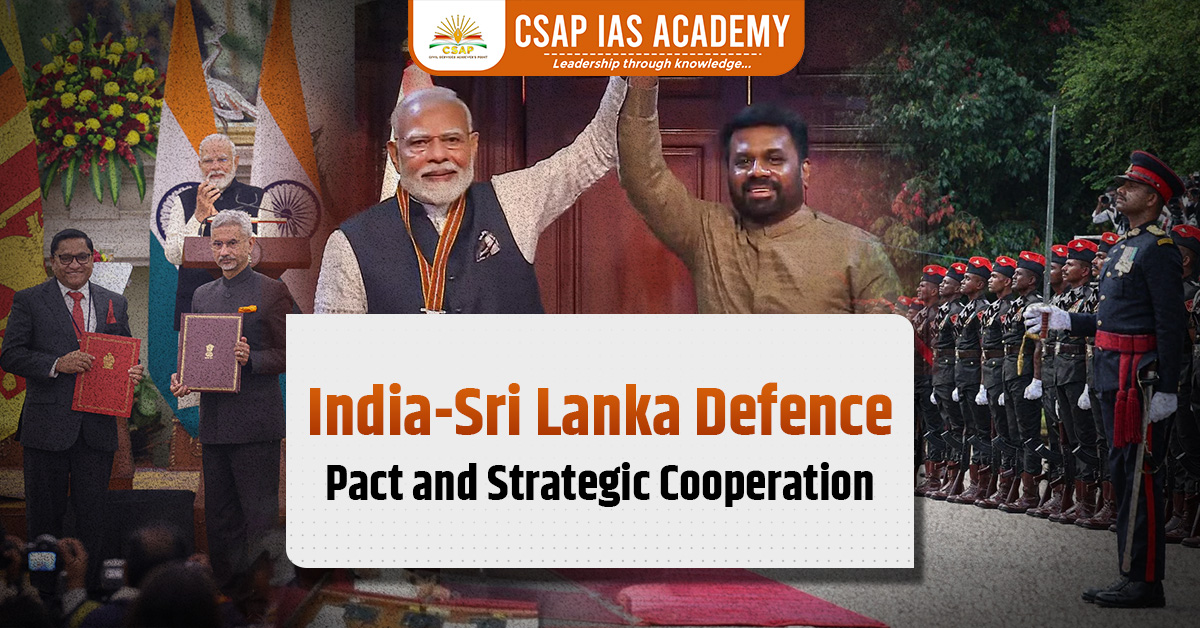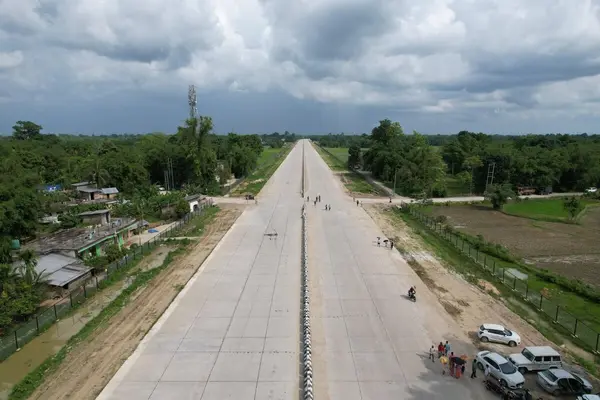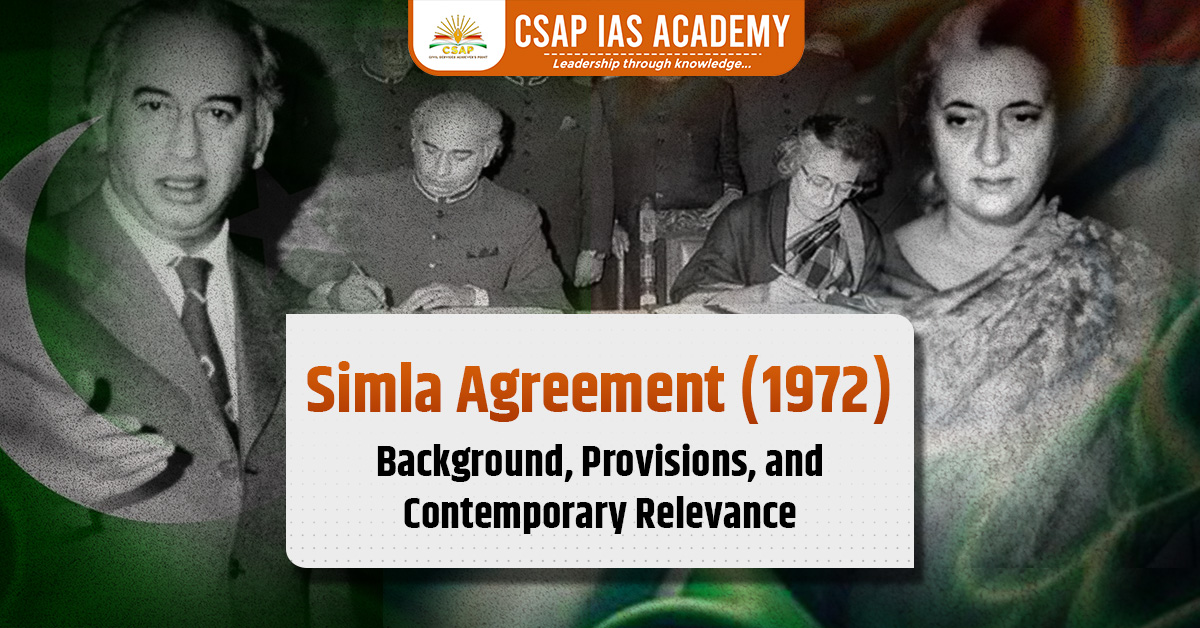On April 5, 2025, India and Sri Lanka reached a significant milestone in their bilateral relations by signing an India-Sri Lanka defence agreement. This marked the first time the two nations institutionalized a framework to deepen military and strategic cooperation. The development comes amidst growing geopolitical challenges in the Indian Ocean Region (IOR), where both nations share critical maritime boundaries and security interests.
India-Sri Lanka Defence Agreement and Strategic Framework

The defence pact is designed to strengthen institutional mechanisms for security cooperation. Prime Minister Narendra Modi and Sri Lankan President Anura Kumara Dissanayake held wide-ranging talks, culminating in the signing of seven agreements. These pacts included cooperation in maritime security, military training, defence technology sharing, and strategic infrastructure development. A prominent component of the agreement focuses on developing Trincomalee as a regional energy hub. This coastal town, located in northeastern Sri Lanka, holds strategic value due to its natural deep-water port and proximity to major shipping routes.
The defence pact is significant as it reflects the mutual understanding that the security of both nations is interconnected. Prime Minister Modi underlined that the safety and stability of the region depend on such cooperation, especially in the face of increasing global interest in the Indian Ocean.
Economic and Social Assistance
Alongside the india-Sri Lanka defence agreement, India reaffirmed its commitment to Sri Lanka’s economic recovery by finalising debt restructuring agreements and reducing interest rates on Indian loans. This move is seen as a strong gesture of support, especially in the backdrop of Sri Lanka’s recent economic challenges. India also announced a financial support package of approximately 2.4 billion Lankan rupees to assist the development of Sri Lanka’s eastern provinces, which are home to a significant Tamil population.
India’s emphasis on a “humane approach” to address the concerns of the Tamil community and the long-standing fishermen issue was notable. Prime Minister Modi expressed hope that Sri Lanka would safeguard the aspirations of the Tamil people and ensure their representation in provincial elections.
Sampur Solar Project and Energy Ties
As part of broader cooperation, the two leaders inaugurated the Sampur solar power plant virtually. This renewable energy project will contribute to Sri Lanka’s energy security and represents a key pillar of sustainable development under the India-Sri Lanka partnership. The agreement also included the construction of a multi-product pipeline, reinforcing India’s interest in ensuring Sri Lanka’s long-term energy stability.
Geopolitical Context and Strategic Significance
The defence pact is strategically significant in the context of the Indian Ocean’s rising importance in global geopolitics. As major powers expand their influence in the region, India’s proactive engagement with Sri Lanka ensures a secure maritime neighbourhood. The agreement also indirectly addresses concerns about the increasing footprint of extra-regional powers near Indian shores.
India’s soft power was also on display as Prime Minister Modi was conferred with Sri Lanka’s highest civilian award, the “Mithra Vibhushana.” Instituted in 2008, the award has been conferred on select global leaders in recognition of their contribution to Sri Lanka’s national interests and regional cooperation. In his acceptance, Modi described it as an honour for 1.4 billion Indians, underlining the deep cultural and civilisational ties between the two nations.
Conclusion
The India-Sri Lanka defence agreement of 2025 marks a watershed moment in bilateral relations. By expanding military, energy, and economic cooperation, both nations have reaffirmed their shared vision for regional peace, prosperity, and stability. The emphasis on mutual respect, co-dependence, and inclusive growth reflects a maturing partnership grounded in historical ties and modern strategic imperatives.
For India, this engagement with Sri Lanka is not only about securing its southern maritime flank but also about projecting itself as a reliable partner in South Asia. As the global order continues to shift, India’s ability to build resilient neighbourhood relations will remain a cornerstone of its foreign policy.
Read: Manoj Kumar
Download App:










